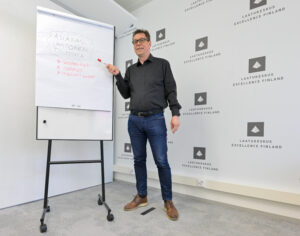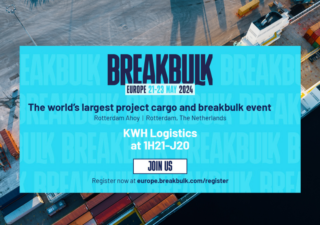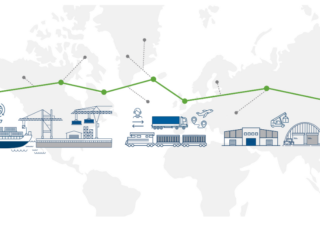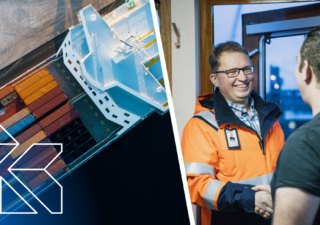Agree on how to act and act as agreed
Systematic approach, anticipation, continuous improvement, and learning from others form a good foundation for responsible work.
KWH Logistics’ ESQ director Petri Lehtipuu develops the company group’s environmental, safety, and quality thinking. In his opinion, ESQ (Environment, Safety, Quality) should not be seen as overly complicated. Clear goals and objectives make the activity straightforward and instead of being theoretical, it becomes a natural part of everyday work.
– ‘First of all, management must be systematic,’ states Lehtipuu. ‘It means that things are done planned and consciously, according to the agreed model. It is also important that all parties know why things are done in a certain way.’
Another aspect of responsibility consists of external requirements. In addition to internal drive, both customers and society require responsibility from operations, which can be measured and monitored. This requires a lot of forethought.
Thirdly, Lehtipuu emphasizes continuous improvement. Operations change and develop, and responsible thinking must also be kept up to date. For example, occupational safety must be continuously developed.
From one industry to another
Last year, KWH Logistics joined the Finnish Quality Association (Suomen Laatuyhdistys ry) as a member. The association aims to promote quality management and quality control and provides its members with opportunities to learn from national and international leading companies and other organizations. According to Lehtipuu, benchmarking with other industries is particularly useful.
– ‘It is natural for a logistics operator to visit, for example, ports operated by others, but in the development of new operating models, getting to know a completely different industry can give much more,’ he states.
According to Lehtipuu, the bar rises higher at the same time. When an industry focused on a certain subject area presents its innovations, you can get completely new thinking and a fresh long-term vision for your own operations. In addition, it is easier to provide information to a company operating in a different industry than, for example, to a competitor. In a small country the size of Finland, sharing good practices benefits the competitiveness of the entire country.

ESQ Director Petri Lehtipuu advises to borrow good practices from other industries.
Internal cooperation
Of course, one can also learn a lot from companies in your own industry, and KWH Logistics companies can look for good practices from their sister companies or from other companies in the KWH group.
– ‘For example, there are constantly new requirements set by both customers and directives for responsible reporting, and it is worthwhile to develop effective documentation models together. Arranging visits within our own company is easy, and internal cooperation will be further developed in the future.’
Investment is made in learning from others and borrowing as well as in efficient sharing of information, for example through more active internal auditing work in the future.
– The number of people conducting internal audits will be increased, and there will be an emphasis on their training,’ says Lehtipuu. ‘With a sufficiently large pool of internal auditors, it is ensured that no one will be too burdened by ESQ work.’
Digitization also plays an important role in the development of sustainability work.
– ‘Digitization increases the speed and reliability of data processing, and it can be used to automate refuelling systems and calculate the amount of carbon dioxide emissions, among other things.’
The best outcome in sustainability work also comes from combining the expertise of multiple people.













